Rufus Wainwright emerges from the pandemic with a vengeance
With a new album, tour, and post-pandemic outlook, Rufus Wainwright is ready to embrace everything he can

Rufus Wainwright is out there winging it on his current tour.
“Stuff always evolves naturally when you’re in person,” says the 48-year-old. “That’s one of the great perks of live performances — you can go with the flow. It’s something you can’t really do over Zoom. You can’t Zoom with the flow.”
Wainwright is not disparaging the rise of virtual performances during the pandemic. After all, among his peers in pop music at least, the gay classically influenced singer-songwriter was one of the early adopters — and more frequent and creative users — of virtual and livestream technology over the past 18 months, seizing on its potential as an alternative means of connecting with fans.
“It’s an important factor of human existence now that exists, and that we can benefit from,” Wainwright says about digital technology. “Whether you’re someone who wants to work more from home, or for things like AA meetings or therapy, or if you would rather hear a concert just in the comfort of your living room, that’s more of an option now. I don’t think it replaces the live experience in any way. It’s more options.”
That said, Wainwright isn’t planning more virtual offerings anytime soon. Having played through all of his lush, chamber pop studio albums one by one, as well as generating yet another tribute to his patron saint — the original gay diva — Judy Garland, he’s effectively killed the switch on livestreaming, at least for now. “I wouldn’t disregard it totally from my palette,” he says, adding that he’d return to the virtual realm “if there’s another outbreak.”
Ultimately, Wainwright is more interested in expanding into another creative realm that the pandemic helped him to realize: musical collaboration. Over the past year he’s worked with artists as varied as Japanese taiko drumming ensemble Kodo, Glee star Darren Criss, neo-disco/house outfit Ampersounds, and lesbian country-western powerhouse Brandi Carlile. Together, Wainwright and Carlile offered an emotive, moving cover of “Who Knows Where the Time Goes” by late British folk legend Sandy Denny.
“There are some rumors that I’m going to do more duets in the future,” Wainwright says. “I would love to do more duets with people like Brandi and others, be it from my family or some other classic artists. That is an avenue I want to explore more, the duet world.”
More immediately, however, Wainwright’s focus is on performing live shows at concert venues throughout the U.S. and Europe. The tour includes a stop at The Anthem on Tuesday, Sept. 28, a co-headlining show with Swedish indie-folk/classical guitar virtuoso José González, who is every bit as dazzling a live performer as Wainwright.
“I haven’t met him yet or seen him live, so I’m excited for that,” Wainwright says. “It’s a very intimate evening with me and three musicians. He might have someone with him as well. But it’s a nice, very subtle re-entry. I haven’t toured in a long time with another act, something that’s always fun because we can share each other’s fan base and widen the spectrum a little bit.”
Wainwright’s fall 2021 tour is a more limited, scaled-back version of the grand, far-reaching summer and fall 2020 tour that had been planned prior to the pandemic in support of Unfollow The Rules. That ninth and superlative studio album went on to earn Wainwright his second Grammy nomination (the first was for his original tribute to Garland, 2007’s Rufus Does Judy at Carnegie Hall).
Last week, he released Unfollow The Rules – The Paramour Session, a scaled-back version recorded at Wainwright’s first livestream last summer. The newest release serves as an appealing preview of the current tour, and also serves as a keepsake for concertgoers.
“Because of COVID, I had to scale back a lot on my band,” he says. “I was originally going to go out with eight people, but now there are only four of us on stage. We don’t have drums and stuff, and I don’t have a big fancy backdrop. But that kind of makes sense if you listen to this new album, because that is: ‘The COVID special that we’re offering today.’ And there is something very beautiful about it. It’s very intense, and very pure.”

METRO WEEKLY: Let’s start by revisiting a different troubled era, the 20th Anniversary of 9/11. Where were you on that fateful day?
RUFUS WAINWRIGHT: I was in Manhattan when it happened. Thankfully I was in Midtown, so I was able to observe it from a safe place, though nothing seemed safe that day in New York.
Actually that day, I had previously scheduled to go over to Yoko Ono’s house and meet Sean Lennon and learn the song “Across the Universe.” That morning, after the towers went down, I didn’t really know what to do. I figured I guess I’ll just go to my rehearsal and walked across Central Park, which was completely empty — it was very surreal — and passed the Imagine area, the Strawberry Fields, and then up to the Dakota, and Yoko’s apartment. She was there with Sean. Sean took his guitar out while I was sitting on the bench of John Lennon’s white piano.
MW: You had toured with Sean Lennon before that meeting, right?
WAINWRIGHT: Yeah. Sean was really instrumental in promoting my first album. September 11th was around Poses, my second album. I’d already been on tour with him, and he had made a really concerted effort to promote me. Whenever we were doing record signings together, he would always tell crazed Beatles fans about my album and insist that they buy it. He was a real champion of mine.
The whole thing is such a tragedy on so many levels, and I wouldn’t even say 9/11 was the starting point. For me, really the starting point is when George Bush stole the election. That to me was the starting point. I think he did a fairly good job consoling the nation after 9/11, but then his move to attack Iraq was obviously a disaster that we’re still dealing with the consequences of today on so many levels. It really began a whole period of extreme darkness and kind of the fall of America, which we’re now full-fledged in the middle of.
MW: How much have you personally changed since that era? What was Rufus Wainwright like back then, roughly 20 years ago?
WAINWRIGHT: Wow. Well, in 2002, I had to come to terms with my own kind of 9/11, being that I was pretty trashed and destroyed due to my lifestyle. Thankfully I was able to put my house back in order and focus more on what mattered in life, and have been able to hold onto that for a long time. Not perfectly, by any means. I was around 27 when all of this happened. I’m not big into astrology or anything, but I do occasionally believe in that stuff. And there was this real Saturn return that occurred to me where I was faced with two paths, one to ultimate destruction and one to life and renewal. I’m pretty sure I picked the renewal one, so that’s why I’m here today speaking to you twenty years later with a really wonderful life.
But that’s been a long journey in itself, and I’ve also experienced tragedy and disappointment along the way still, no matter what. I often think about the fact that a lot of the men, especially, who were my contemporaries in the music business have died. There’s quite a list of tragic outcomes that I wasn’t so distant from. So I feel like I was fighting a battle that, in a lot of ways, I won.
Whether it’s Elliot Smith or Jeff Buckley or Kurt Cobain, certainly there was a drug component that was haunting all three of them. And I can definitely attest to the fact that back then and even much younger — around the time I was fifteen or so — heroin and speed were really rampant, really kind of present in everyday life. I think the same is true today, unfortunately. But in my life personally, it doesn’t really come up at the moment, and I’m happy about that, because drugs are pretty wretched.

MW: I imagine two decades ago, when you thought about your future, you didn’t anticipate you would get married and become a father, raising a young daughter with your husband.
WAINWRIGHT: And also I was only coming to terms at that point with the fact that I had been molested when I was younger by this stranger that I met in London — that took a good ten years to acknowledge fully. But no, then the concept of having a child and a husband seemed completely impossible — just, I don’t know, of aliens or something. It just didn’t cross my mind. And lo and behold, here I am today.
MW: When asked about your future in a 2003 interview with this magazine, you said, “I intend to write an opera one day.” You’ve since written two, in fact.
WAINWRIGHT: Yes. What’s great about opera, in general, is that it’s a seriously long form. You can study it and get a real trajectory of time over the millennia, in terms of how long it’s been around and how much it’s evolved. But then when you actually dive into it to compose one, you have to have a similar kind of marathonic method that does transcend the present and keeps you more in touch with the universe and all things eternal. It requires a lifelong dedication, and the idea that you’re building something that you may not even be able to reap the benefits from in your lifetime.
MW: Which is very different from your main pursuit in music.
WAINWRIGHT: Yes, from pop, which is very ephemeral, and very immediate, and very disposable. But also incredibly exciting and present and explosive when it does work.
MW: And then there’s the popular art form that kind of straddles the pop-opera divide. Is it true you’re considering writing a musical?
WAINWRIGHT: Oh, yeah. I mean, I can’t announce anything right away. But yeah, I’m wholeheartedly engaged at the moment in several musical projects. And that’s interesting, because that really is the middle line in terms of these two separate worlds of pop and opera. Musicals really go right down the middle, both because you want it to be a hit — you want it to be accessible to a main audience — but you also want it to be something that will last, and on par with classical pieces of the American or British repertoire that have lasted about a hundred years now. So it’s a nice middle ground. Plus, you can also make a lot of money, which is good.

MW: But it also takes a significant amount of time to bring to fruition. Not as much time as an opera, but certainly more time than pop.
WAINWRIGHT: It takes more time, but it still has to be relevant. When you compose an opera, you just sort of enter into that universe, and it’s completely separated from today’s world. It’s very much like a religion or a spiritual practice where you leave this planet and you kind of get lost in this other world.
But musicals still have to relate to what’s going on today, so even though it might take long to produce it, you can’t lose track of where it fits in society, which is a very difficult road to navigate, especially these days considering how much society is shifting, and all the revolutions occurring socially.
MW: Speaking of musicals, when did Judy Garland come into your life?
WAINWRIGHT: Judy Garland is a very strong figure in the early to the middle part of my life. I still adore her and I still worship her in many ways. It’s interesting because I am now older than she was when she died, and I have to say that this last time I did the concert, when I did it virtually, I was singing it past the age of her death. And I did feel somewhat liberated. I felt like the grasp had been sort of lightened a little bit.
I mean, I’ll always adore her. But when I was a small child, she loomed large in terms of running away to Hollywood to become a superstar, and singing these incredible songs, and being in these wild musical numbers. And then later when I moved to Hollywood and got more into drugs and alcohol, that was when the more louche Judy accompanied me. And then, when I conquered some of those demons, Judy was a kind of patron saint in a lot of ways of someone who didn’t survive that journey and who was never able to slay the dragon. She became more of an icon of perhaps what not to do.
MW: Had you been thinking about recreating her famous concert at Carnegie Hall long before you finally did it the first time, in 2006?
WAINWRIGHT: No. The idea for that happened around the time of the Iraq invasion. Speaking of 9/11, there had really been an incredible moment of camaraderie and sort of world love that had occurred, where everybody was really genuinely devastated about what had happened in New York and to America all over the world, even in the Middle East. So there was this split second where it seemed like we could maybe learn from this and try to make the world a better place.
But sadly, George Bush decided to invade Iraq, and all of that was dashed. And that was, to me, an equal tragedy to 9/11, when we invaded Iraq. So I was really traumatized by that. And subsequently the Judy Garland album became this little thread that symbolized my love of the United States, and of America, and all that makes it great and positive. So I would listen to her album just as a way to hold onto this dream that I still believe, believe it or not. And then I felt it made sense to perform it just to keep it alive in a lot of ways.
MW: Let’s fast-forward to our current pandemic era, which ushered in livestreaming as an alternative to in-person concert performances. You dove right in, offering quite a few livestreams, with one devoted to Garland and a whole series in which you played through your album repertoire. Is it true you’re considering releasing some of that material as recorded albums in the near future?
WAINWRIGHT: We’re debating it. The album that’s just come out, Unfollow the Rules – The Paramour Sessions, because I couldn’t tour, we still wanted to do something to kind of commemorate the release, so we did this acoustic set in this incredible Hollywood mansion from the silent era in Silver Lake called The Paramour. And it was such an amazing event for us. For one thing, we may have been breaking a few little rules at that time because you weren’t really supposed to leave your place, but people were so hungry for some kind of expression that a lot of us took chances. Everybody was triple-masked and wearing gloves at this little concert.
At the same time also, the Black Lives Matter protests were gearing up on the streets, and so there was also this very intense human activity juxtaposed with this isolation. And then, of course, later the fires came. So there was a real sense of drama in the air. So we recorded that concert, and now we decided to release it as an album. And I did the Judy Garland thing, and there’s talk of releasing that at some point. It is coming up to the 100th anniversary of Judy’s birth, she’ll be 100 years old. So there is some talk of marking that occasion.
MW: How are you weathering the ongoing pandemic, and the fact that it has lasted longer and gotten stronger than we ever expected?
WAINWRIGHT: I was doing a show last night in San Diego, and it was great to be back on stage. I think people were really appreciative of the fact that they were out of their house and seeing a concert and so forth. There is an excitement out there. But I did mention at one point, “This is a song that I wrote a few years ago when everything was horrible. Isn’t it so much better now?” I said quite obviously ironically, because yeah, it’s pretty terrible at the moment, what’s going on in terms of just this political divide and the idiocy of large portions of the population who just don’t care for democracy, or the rule of law, or general health, and are just so selfish in their outlook, they’re willing to put children at risk and so forth. It’s just very disheartening, that whole situation around vaccinations and masking. The politicalization of the pandemic is horrific. There’s no lesser word for it.

MW: I’m struggling to see much reason for hope that things will get better anytime soon. Do you feel similarly?
WAINWRIGHT: Well, I have to say, I am super into Biden right now. People might love him or hate him, but you cannot accuse him of not attempting the grand gesture. Whether it’s getting out of Afghanistan or mandating vaccines, he is willing to go full throttle. And that’s what the world needs right now — no kind of half-measures at this point. We have to really face these problems head-on, and he’s the guy to do that. And he does it also in just a solid way without it being demonstrative. It’s softly spoken but firm. So I admire the fact that he’s willing to put his neck out there and make a difference.
So I’m hopeful for him and his administration. And I think we’re all going to have to work really hard during the midterms to keep the House and the Senate. That is the big order of the day. And it isn’t even a question of, “Oh, I’m worried about it.” It’s like, “No, we’ve got to go out and fight for it.”
MW: It’s kind of like 2020 all over again.
WAINWRIGHT: Yes, but I think even more volatile in the sense that, who knows what’s going to happen at some of these state capitols?
MW: And then there’s the Supreme Court, which is its own issue.
WAINWRIGHT: I get that people were hesitant or had issues with Hillary Clinton, and perhaps she wasn’t the best candidate. That being said, this would have never happened with her as president. That is an undeniable fact. So we are reaping the kind of bitter reward, I guess, of having not elected Hillary, with the Supreme Court.
MW: The pandemic offered you several opportunities, one of them the chance to do a deep dive into your whole repertoire in a way you wouldn’t have otherwise at this point in your career.
WAINWRIGHT: That was a wonderful experience to go through all of my albums and revisit songs that I hadn’t sung in many years. In fact, not so much on this tour right now but when I go out alone and I do my troubadour thing, I’m now able to sing a lot of songs that I had previously thought were too produced and too ingrained in old Rufus-land to bring back, but do actually work well with a smaller arrangement. So yeah, it was nice to revisit my catalog. And I think a lot of people were pleased with that experience as well.
MW: Can you give an example of one of those songs from “old Rufus-land” that actually still works today?
WAINWRIGHT: Well the big one right now — I don’t sing it in this show, but I do when I’m out alone — is “Go or Go Ahead.” Another is “Beautiful Child.” Or “Peach Trees.” Those are all songs that I thought needed a band behind them that do actually work nicely solo. Which for me is a big deal. That’s one of the philosophies I’ve always held onto that I got from my parents: you’re only as good as when you do it alone up there. The kind of essence of a songwriter should be someone who’s alone on stage, playing an instrument and singing their material. That’s the crux of the matter in my opinion. And it’s something very rare to this day, it’s not actually done that much.
MW: I know it’s not altogether uncommon for established songwriters to have songs from early in their career that they can’t or don’t feel like they can sing anymore, or that just don’t speak to them now. I suspect that’s not really true with your repertoire.
WAINWRIGHT: No, no. I can remember from early on, making a concerted effort that whatever song I’m writing, will last, and has a kind of classical structure that is in a way divorced from my own life. Sometimes I wish I could be more effusive, or more wild in my interpretations and really let loose, but the core of my being is really quite traditional and structured. And I am really now only benefiting from that, in terms of going back and revisiting that material. In my mind, it’s withstood the test of time. But I’m only talking about me — my songs aren’t in any way considered classic American songs. But they could be in many years. I wouldn’t count them out.
MW: As far as performing goes, has it been a struggle to go so long without reaping the benefits of having live audiences to interact with and get immediate feedback? I imagine you might value that even more now.
WAINWRIGHT: I did a lot of shows over the summer in Europe where finally I had an audience. So I’m back in the audience world, and I love it, and I appreciate it. And one does get a sense of urgency concerning that. They’re very excited to be back. That being said, I treated this whole pandemic period more as a gift artistically. I needed to look inward, I needed the audience to leave a little bit, and just focus on what I was doing for myself as an artist, and not about selling tickets or selling merchandise and moving units and stuff. It had to be more about the art itself. So I was able to sort of turn that dime and focus on the interior for a moment. But yeah, we’re back out on the road and it is exciting to see people again.

MW: Are you nervous about touring and performing while the virus, and the Delta variant, in particular, continues to spread?
WAINWRIGHT: Well, we’re all in the same boat. I mean, I’m vaccinated, I will get the booster shot when I can. I think the thing that makes me most nervous is with our daughter, who’s too young to get the vaccine at the moment, and I really would like her to start that process. So that’s what we’re kind of waiting for, and what probably worries us the most.
MW: That’s a good segue to talk about your daughter and your family. How did the pandemic play out for your family?
WAINWRIGHT: Our daughter was sort of at the perfect age for this pandemic in the sense that, yeah, it was a total drag for her to be out of school and not playing with her friends, and it was really, really tough. That being said, she still loves being with her parents, and really getting that undivided attention and that constant presence I think was very wholesome for her. When we look back, she can actually say, as a lot of kids can say, “I got to spend some serious time with my parents at a very developmental period.” And I think they will benefit from that.
For older kids, it was harder. Once you’re 15 or 16, hanging out with your parents is no longer a necessity, so it’s different for them. But for our daughter, who was eight, nine, 10, I think she really benefited from that. Now she’s back in school, thankfully. I think if she has to come back home, if there’s another outbreak in her school or something, that won’t be great. But so far it seems like they’re doing okay.
MW: Did you learn things about yourself as a father over the past year and a half?
WAINWRIGHT: Yeah, I think what you really get to learn, and what you get to master when you are given the time to do it, is rhythm. There’s a cycle that you start to maneuver that with enough time and enough practice, you can sort of master. It’s very much like music actually. And it subsequently becomes about not thinking about it too much, not defining it too much, not making it into a solid structure. It’s just being able to travel through it somewhat effortlessly, and that takes practice, and we did that.
MW: Does she understand that you’re not going to be around as often in the weeks and months ahead?
WAINWRIGHT: She does. But I’ve had to fashion it that I’m not away too much. The tours that I’m now planning will not be as long, and I’ll return regularly. But yes, there will be more absences at this point. But look, I used to see my dad twice a year, once in the summer and once maybe at Easter, or something. So I think we’re doing pretty good.
MW: Speaking of your dad, do you have a good relationship with him these days?
WAINWRIGHT: Yeah, yeah, we’re good. We have a very good relationship at the moment. And, in fact, my daughter Viva is quite obsessed with Loudon. Because he has a whole repertoire of very silly, very funny, very lighthearted material. Unlike me and Leonard [Cohen], it’s Loudon who can write the fun songs and has the real sense of humor. And so Viva really, really gravitates toward that. I would even say that he might be her favorite at the moment.
MW: Has that inspired you to try to write more fun and jovial songs as a result? Maybe even songs that Viva herself could sing — that is, if she sings.
WAINWRIGHT: Oh yes, she’s a beautiful singer. A little bit here and there. I mean, I have comedy in my material at times. But when I go into songwriting mode, I don’t know what’s going on. I just sort of go with the flow and it’s there.
Rufus Wainwright & José González appear Tuesday, Sept. 28, at 8 p.m. at The Anthem, 901 Wharf St. SW. Tickets are $55 to $75. Call 202-888-0020 or visit www.theanthemdc.com.
To learn more about Rufus Wainwright, visit www.rufuswainwright.com.
Read More:
BD Wong on ‘Nora from Queens’ and the powerful representation of ‘Shang-Chi’
Q-Force: Twink actor Matt Rogers stands by “every single joke” in Netflix’s queer comedy
Aaron Lee Tasjan is hitting the road with his queer-tinged album “Tasjan! Tasjan! Tasjan!”
Support Metro Weekly’s Journalism
These are challenging times for news organizations. And yet it’s crucial we stay active and provide vital resources and information to both our local readers and the world. So won’t you please take a moment and consider supporting Metro Weekly with a membership? For as little as $5 a month, you can help ensure Metro Weekly magazine and MetroWeekly.com remain free, viable resources as we provide the best, most diverse, culturally-resonant LGBTQ coverage in both the D.C. region and around the world. Memberships come with exclusive perks and discounts, your own personal digital delivery of each week’s magazine (and an archive), access to our Member's Lounge when it launches this fall, and exclusive members-only items like Metro Weekly Membership Mugs and Tote Bags! Check out all our membership levels here and please join us today!









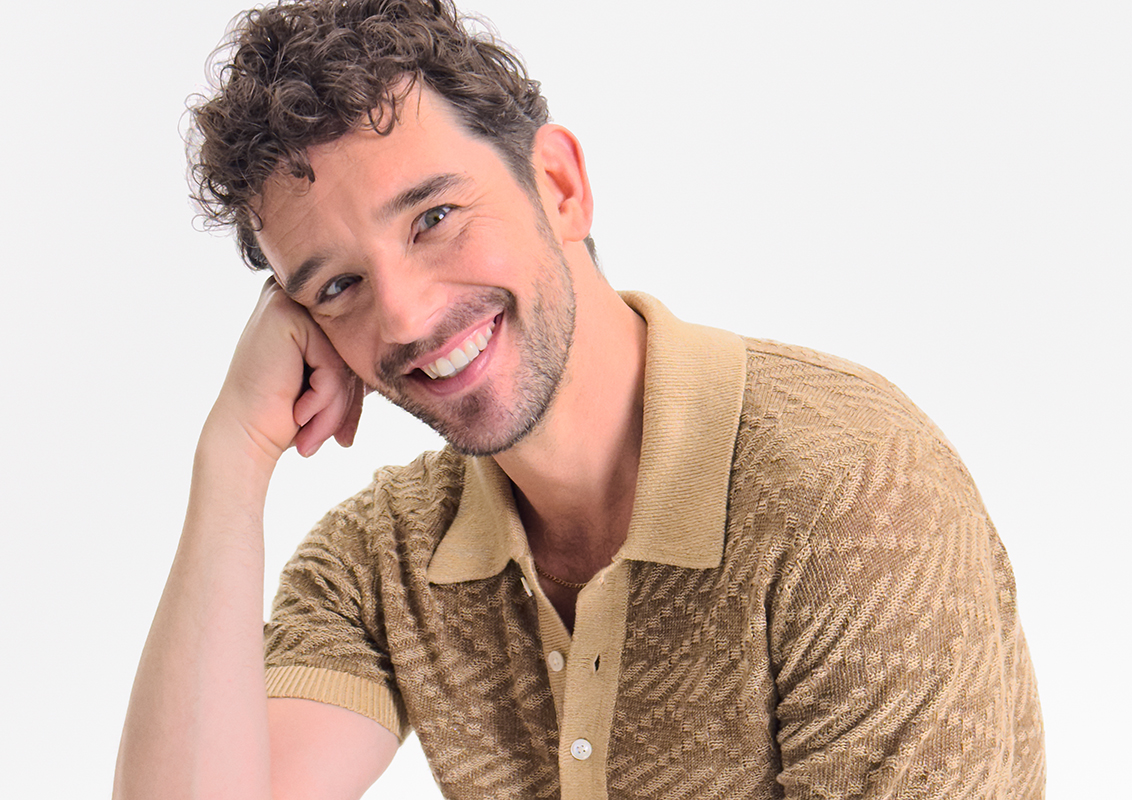
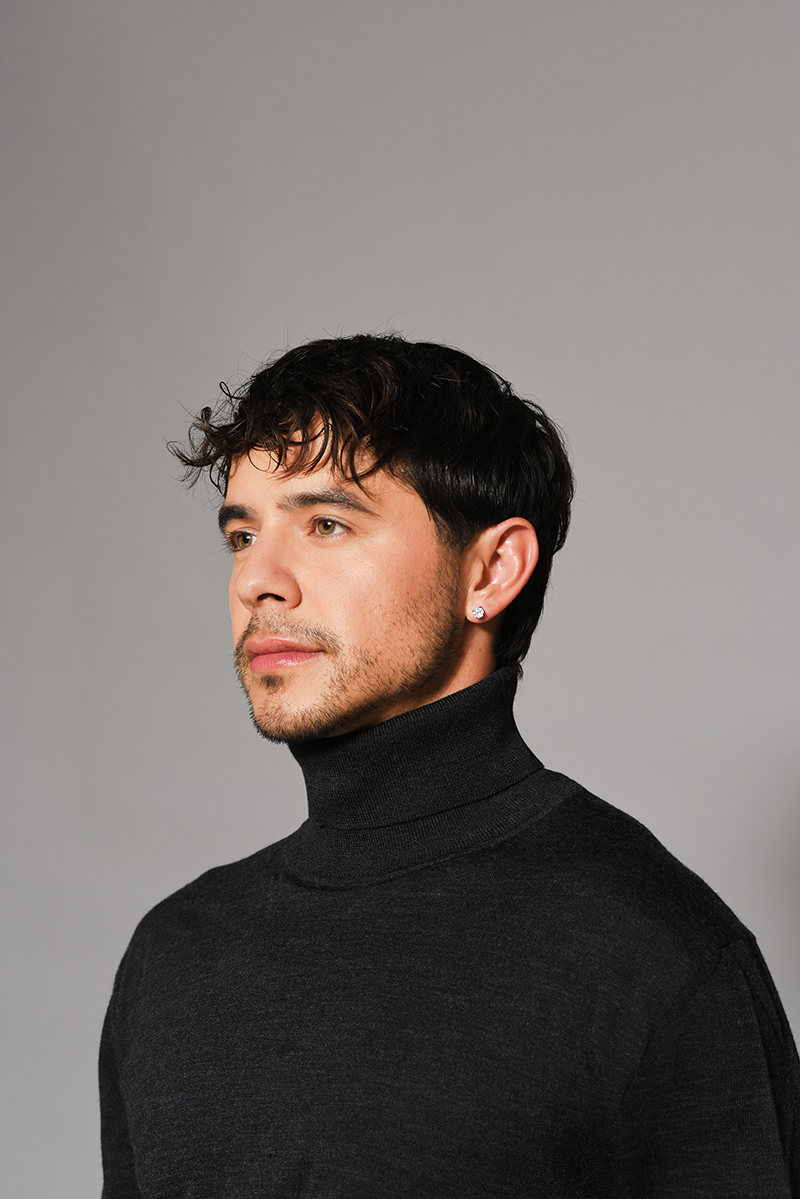














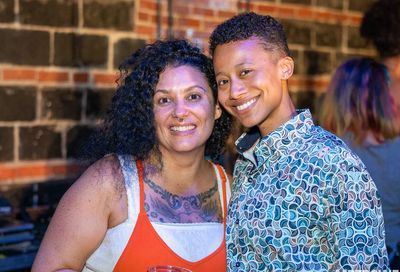
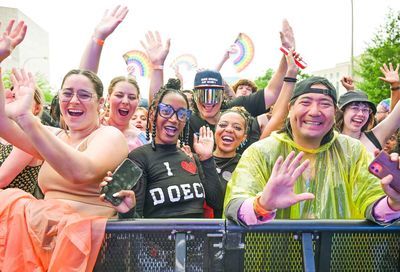
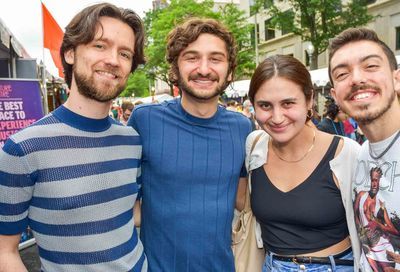
You must be logged in to post a comment.